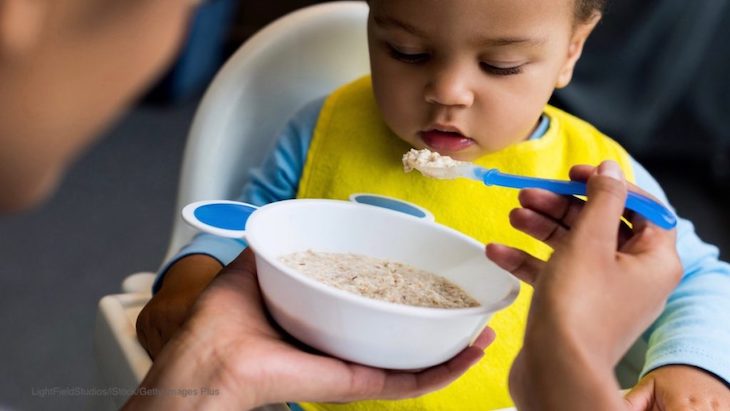The FDA is announcing action levels and draft guidance for lead in processed baby food. This, the FDA says, would result in “significant reductions in exposures to lead from food while ensuring availablility of nutritious foods. This plan is part of Closer to Zero, part of the governments’ plant to reduce exposure to the heavy metals lead, arsenic, cadmium, and mercury in foods consumed by young children and babies.

FDA Commissioner Robert M. Califf, M.D. said in a statement, “For more than 30 years, the FDA has been working to reduce exposure to lead, and other environmental contaminants, from foods. This work has resulted in a dramatic decline in lead exposure from foods since the mid-1980s.The proposed action levels announced today, along with our continued work with our state and federal partners, and with industry and growers to identify mitigation strategies, will result in long-term, meaningful and sustainable reductions in the exposure to this contaminant from foods. For babies and young children who eat the foods covered in today’s draft guidance, the FDA estimates that these action levels could result in as much as a 24-27% reduction in exposure to lead from these foods.”
The foods that are covered in this draft guidance, which does not have the power of law behind it, include foods packaged in jars, tubes, boxes, and pouches that are intended for children under the age of two. The levels are: 10 parts per billion for fruits, vegetables (excluding single-ingredient root vegetables), mixtures (including grain and meat-based mixtures), yogurts, custards/puddings, and single ingredient meats. The level is set at 20 ppb for single-ingredient root vegetables and 20 ppb for dry cereals.
Food safety experts, some politicians, and child advocates have been warning parents about the lead content of some of these foods, particularly rice based cereals, for years. In 2019, Senator Chuck Schumer (D-NY) raised concerns about heavy metals in baby food. At that time there were no regulations to address this problem.
Fruits, vegetables, and grains absorb lead from the earth as they grow. The FDA does say that the presence of these heavy metals doesn’t meant the food is unsafe to eat, although experts say there is no safe blood level of lead. The FDA says that these actions levels should be achievable. The action level for a contaminant in food depends on the amount that could exceed the FDA’s Interim reference Level, which measures the contribution of lead in food to levels in the blood.




